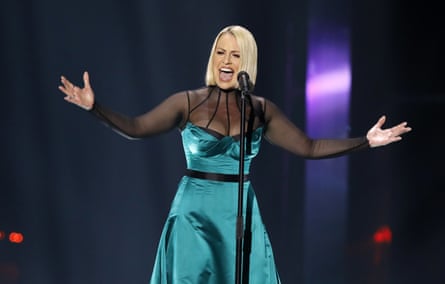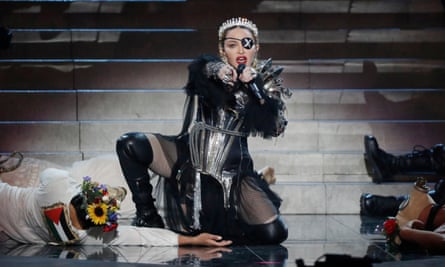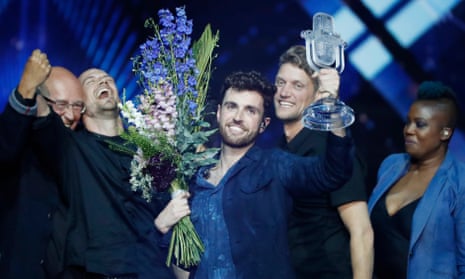Europe’s annual musical jamboree culminated in triumph for the Netherlands on Saturday night.
In one of the closest competitions in recent years, the battle for top spot in the Eurovision song contest was a tight fight between Sweden, the Netherlands, Italy and North Macedonia.
Duncan Laurence, the bookies’ favourite from the Netherlands, justified his pre-contest hype after the public voted his ballad Arcade the winner. It is the first time the Dutch have won since 1975.
Laurence’s haunting track has already become a big hit on streaming services since its release earlier this year.
Sweden’s entry John Lundvik had looked like adding to the Scandinavian country’s illustrious record of six wins, beginning back in 1974 when Abba came first.
Sweden has such a surplus of Eurovision talent it also furnished the song for the UK’s entry, as well as Estonia’s – Victor Crone is Swedish.
The Eurovision show brought together acts from 41 countries. The surprise of the night was North Macedonia, the newly renamed country in the Balkans. Their performer, Tamara Todevska, had previously appeared twice before in the competition but Saturday night’s entry, Proud, proved their most popular entry ever.

The coveted 12 points from the UK’s jury panel of industry professionals also went to North Macedonia. The UK’s entrant, Michael Rice, delivered a rousing performance earlier in the evening singing Bigger Than Us against a backdrop of a starry night sky and racing comets.
Rice had said before the contest that he hoped to improve the UK’s reputation at Eurovision, as the UK had not won in 22 years or been in the top 10 in a decade. However, it was not to be – the UK finished last in the final with just 16 points.
Unusually, none of the performers went home with zero points.
The contest was staged in Israel, a country that had played host twice before, in Jerusalem in 1979 and 1999. The recent policies of Benjamin Netanyahu’s government towards the occupied Palestinian territories roused considerable anger and calls for a boycott of the contest.
The Boycott, Divestment, Sanctions (BDS) movement claimed that Israel was “shamelessly using Eurovision as part of its official Brand Israel strategy” to “whitewash and distract attention from its war crimes against Palestinians”.
Iceland’s entry, the leather-clad BDSM group Hatari, had slammed Eurovision in Israel as being “built on a lie”, but nonetheless took to the stage – choosing to instead focus on Eurovision as a champion of diversity and inclusiveness. Their song, Hatrið Mun Sigra, was one of the eye-catching performances of the final.
Hatari showed support for Palestine, holding up Palestinian flags as their points scores were read out.

Madonna’s performance during the show received a muted response from the studio audience. Dressed by the designer Jean-Paul Gaultier, who said he had been channeling Joan of Arc, Madonna’s show featured as many as 30 dancers dressed as monks.
“You’re all winners,” Madonna told the Eurovision finalists before her appearance.
“Let’s not underestimate the power of music to bring people together. That’s the most important thing. Music makes the people come together.”
Her decision to perform had provoked furious reaction from fellow musicians in the lead up to the event.
Madonna defended her choice to perform, saying: “I’ll never stop playing music to suit someone’s political agenda nor will I stop speaking out against violations of human rights wherever in the world they may be.”
Roger Waters, founding member of Pink Floyd, wrote in the Guardian that her decision to perform in Tel Aviv “raised fundamentally important ethical and political questions for each and every one of us to contemplate”.
Waters said that “to perform in Israel is a lucrative gig but to do so serves to normalise the occupation.”








